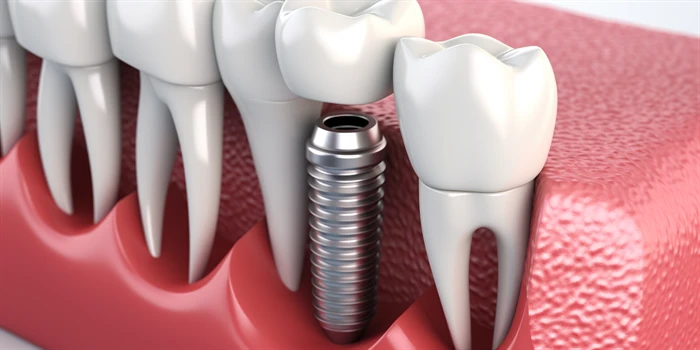Braces are a common orthodontic treatment that helps align teeth and create a beautiful smile. However, wearing braces can sometimes be uncomfortable and even painful. If you're experiencing brace pain and looking for ways to alleviate it, read on. In this article, we will discuss ten effective methods to stop brace pain.

1. Use Dental Wax
One of the simplest and most effective ways to alleviate brace pain is by using dental wax. Dental wax forms a protective barrier between your braces and the inside of your mouth, reducing friction and preventing irritation. Apply a small amount of dental wax on any brackets or wires that are causing discomfort. It will provide relief and allow your mouth to heal.
Price: Dental wax is affordable and readily available at most drugstores and online retailers. The average price ranges from $3 to $7 per pack.
2. Rinse with Saltwater
Rinsing your mouth with saltwater can help reduce inflammation and soreness caused by braces. Mix a teaspoon of salt in a glass of warm water and swish it around in your mouth for about 30 seconds, then spit it out. Repeat this process several times a day, especially after meals. Saltwater rinses also promote oral hygiene and can prevent infections.
3. Apply Orthodontic Relief Gel
Orthodontic relief gels are specially formulated to relieve brace pain. These gels contain numbing agents that provide temporary relief by numbing the affected area. Apply a small amount of gel directly onto the sore spots using a cotton swab or clean finger. Orthodontic relief gel can be purchased at most pharmacies or online stores.
Price: The average price ranges from $5 to $10 per tube.
4. Use Pain Relievers
If the pain from braces persists, you can consider taking over-the-counter pain relievers such as ibuprofen or acetaminophen. These medications help reduce inflammation and alleviate discomfort. However, it's essential to consult your orthodontist or dentist before taking any medication, as they can provide guidance based on your individual situation.
Price: The cost of pain relievers varies depending on the brand and quantity. On average, a bottle of ibuprofen or acetaminophen can range from $4 to $10.
5. Eat Soft Foods
Choosing soft foods that require minimal chewing can help reduce brace pain. Opt for foods such as mashed potatoes, yogurt, soup, smoothies, and soft fruits. Avoid hard, sticky, or crunchy foods that can exert pressure on your braces and cause discomfort. Additionally, cutting food into small, manageable pieces can make it easier to chew without putting excessive strain on your braces.
6. Adjust Your Brace Bands
If you notice persistent pain in a specific area of your mouth, it might be due to a loose or tight brace band. Gently try to adjust the brace band using clean tweezers or a cotton swab. If the pain subsides after adjustment, you can schedule an appointment with your orthodontist to have it fixed properly.
7. Use Orthodontic Rubber Bands Properly
Orthodontic rubber bands, also known as elastics, play an important role in braces treatment. Wearing them correctly will ensure your teeth move in the desired direction, minimizing pain and discomfort. Make sure to follow your orthodontist's instructions regarding the placement and frequency of changing your rubber bands. Improper usage or neglecting to wear them can lead to unnecessary pain and treatment delays.
8. Apply a Cold Compress
Brace pain often involves inflammation and swelling. Applying a cold compress can help reduce these symptoms by numbing the area and constricting blood vessels. Wrap an ice pack or a bag of frozen peas in a clean cloth and gently apply it to the sore spots for about 10-15 minutes. Repeat this process several times a day to alleviate pain and swelling.
9. Practice Good Oral Hygiene
Maintaining good oral hygiene is essential when you have braces. In addition to regular brushing and flossing, consider using an antimicrobial mouthwash to prevent infections and soothe any oral discomfort. Talk to your orthodontist about the recommended mouthwash suitable for your specific needs.
10. Consult Your Orthodontist
If you've tried various methods to stop brace pain with no relief, it's crucial to consult your orthodontist. They have the expertise to identify the cause of your discomfort and provide personalized advice. Your orthodontist may make adjustments to your braces or recommend additional treatment options, such as orthodontic wax, to alleviate pain.
Frequently Asked Questions (FAQs)
Q: How long does brace pain last?
A: Brace pain is temporary and typically lasts for a few days to a week after each adjustment. However, the intensity and duration can vary from person to person.
Q: Can I exercise or play sports with braces?
A: Yes, you can continue to exercise and participate in sports while wearing braces. However, it's advisable to wear a mouthguard to protect your braces and teeth from potential injuries.
Q: Can I take pain relievers daily for brace pain?
A: It's essential to follow the instructions provided by your orthodontist or dentist before taking any pain relievers regularly. They will recommend the appropriate dosage and frequency based on your specific needs.
References:
- Colgate - Braces Pain Relief
- Oral-B - How Do I Deal with Mouth Irritations from Braces?
- Healthline - How to Ease Braces Pain: Causes and Treatment



